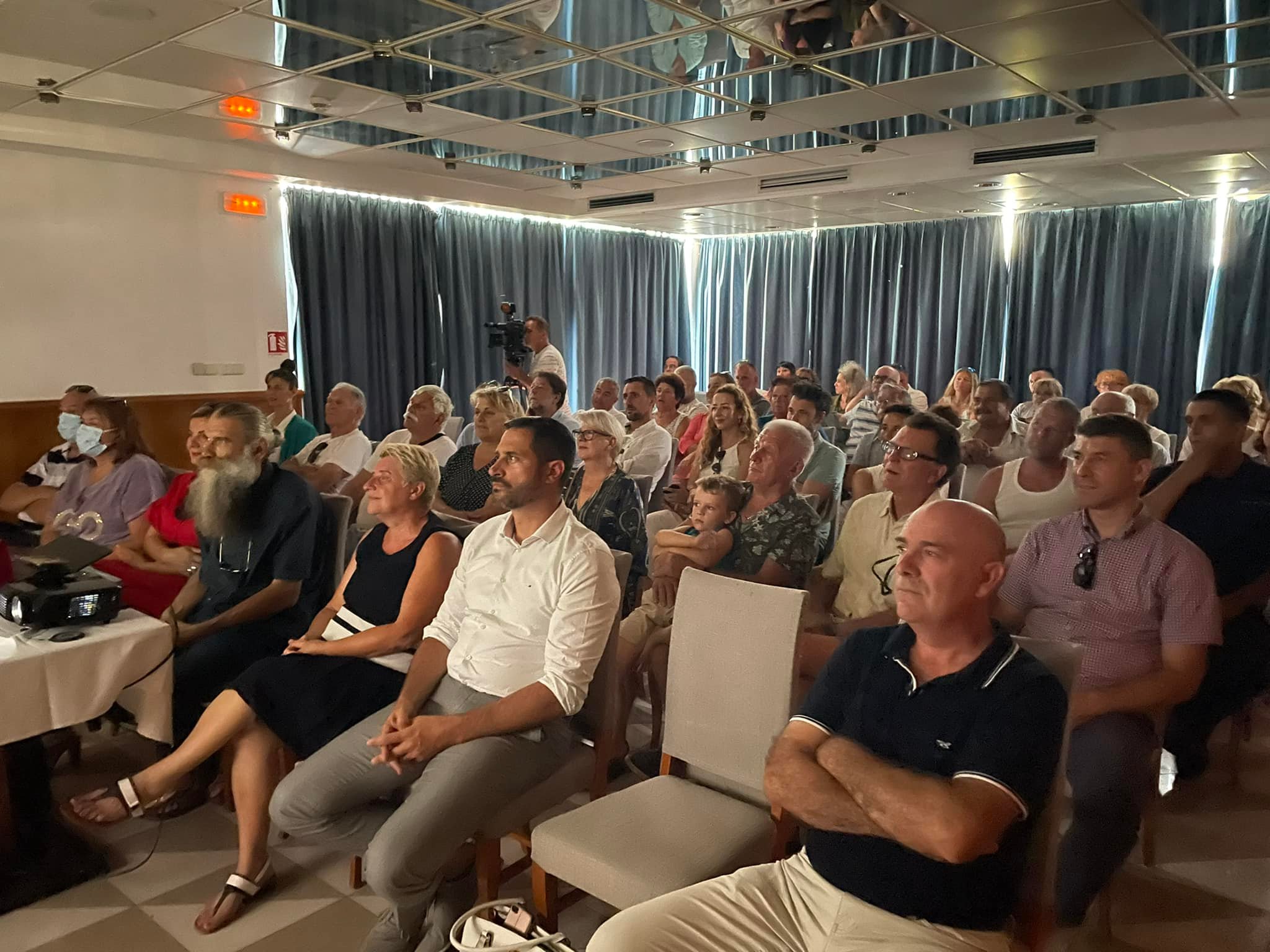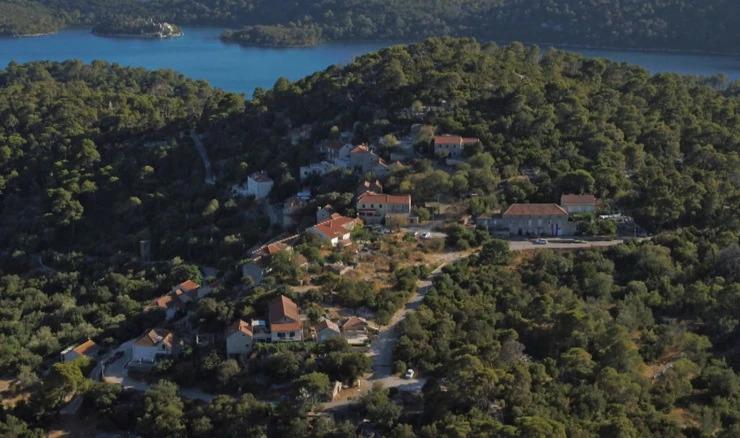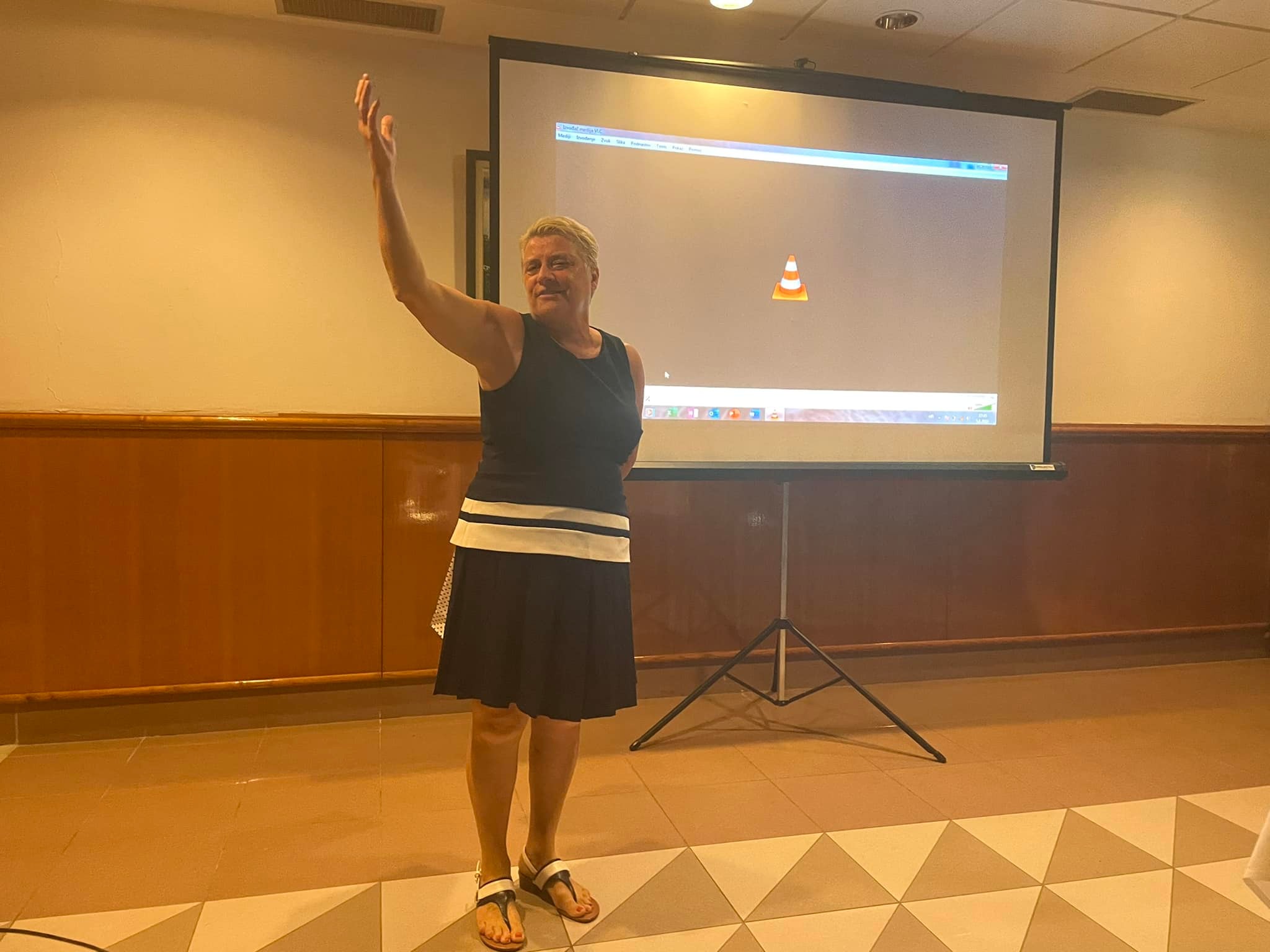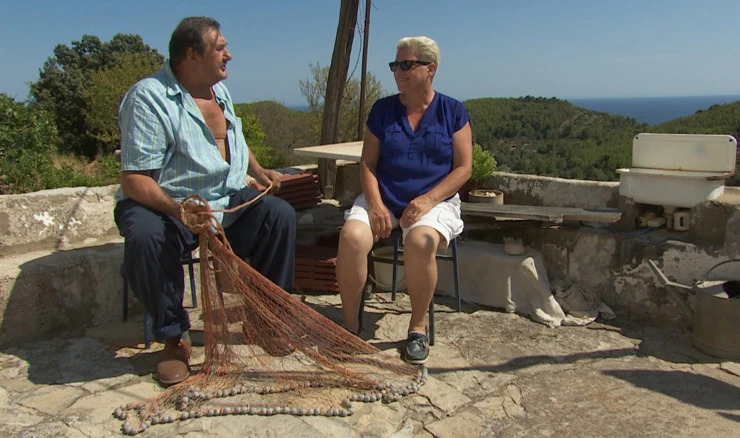Poaching, Smuggling Most Frequent Crimes against Nature in Croatia
ZAGREB, 8 August, 2022 - The WWF Adria environmental protection organisation on Monday released a national report in which it identifies wildlife poaching and smuggling as the most prevalent crimes against nature in Croatia, seeking stricter penalties.
A large number of birds in the Mediterranean are targeted by hunting tourism and trade, trophy hunting, keeping in captivity or hunting for sports and recreation, WWF Adria says in the report.
One of the birds frequently targeted for these purposes in Croatia is the goldfinch, sold in northern Italy and Malta, where it is considered to be a delicacy. Also targeted are large predators such as the wolf, the bear and the lynx, which are frequently hunted as game trophies or are killed due to human-wildlife conflict.
"Our country boasts a large number of endemic species. It also has around 3,000 endangered species that are threatened by various unlawful activities and we need an organised, nationwide approach to the prevention of crimes against nature," Snježana Malić-Limari of WWF Adria said.
In addition to poaching, poisoning and smuggling are major threats to protected species.
The most frequent target of smuggling are birds of prey such as the golden eagle and the griffon vulture, with the griffon vulture being the most frequent victim of poisoning with bait used in the hunt for large predators.
Illegal wildlife trade and smuggling target songbirds such as the goldfinch, as well as tortoises and marine species such as the pen shell, date shell and the sea cucumber, which are considered delicacies in the Asian market.
Crimes against nature are the fourth most lucrative form of organised crime globally, after people, drug and arms smuggling.
The annual cost of crimes against nature and the environment is estimated at US $258 billion, and they cause huge damage to the planet, significantly reduce biodiversity, and result in the complete extinction of individual plant and animal species.
Considering that those crimes are taken seriously on the global and European levels, several initiatives have emerged at the EU level to improve their prevention, establish better coordination and cooperation between competent institutions, and to raise public awareness of the impact of that type of crime on nature.
AFP: 'Tito tour' in Croatian Capital Delves into Strongman's Legacy
ZAGREB, 8 August, 2022 - With no street or statue to remember Yugoslavia's late strongman Josip Broz Tito, a new tour in the Croatian capital Zagreb is hoping to trace the leader's complicated legacy in a city where he remains divisive, Agence France-Presse says in an article published on Sunday.
Adored by some and hated by others, Tito remains a polarising figure four decades after his death across the former Yugoslav republics, including Croatia, where he helped usher in prosperity and authoritarianism alike, the agency says.
The tour's curator Danijela Matijević said the idea for the project came in 2017, after authorities in Zagreb stripped Tito's name from a prominent square.
The move was the latest in a string of measures over the years aimed at ridding the country of its Yugoslav past, removing plaques and monuments along with renaming streets and squares.
But for Matijević, history still matters.
"Tito was definitely one of the 20th century's political giants," Matijević said.
Walk with Tito
The "Walk with Tito" tour, launched last year, takes people to eight sites in downtown Zagreb linked to the Croatian-born leader and the anti-fascist movement he founded at the start of World War II, commonly known as the Partisans.
It stops at the square once named after Tito, the main railway station where Croatia's pro-Nazi regime deported people to concentration camps, and a passage named after two sisters who were resistance heroes.
The tour does not indulge in sugar-coating the past as it explores Tito's successes along with his share of failures, AFP says.
The late leader is known for charting a middle road for the socialist federation he founded, siding neither with the United States nor the Soviet Union during the Cold War.
"Tito had good relations with the West but did not neglect good ties with the East either, positioning Yugoslavia somewhere between and benefiting from both," said Zagreb-based historian Hrvoje Klasić.
The move kept Yugoslavia out of the Cold War's chaos and made it the most prosperous communist country.
But there was also repression and simmering nationalism that exploded after his death, leading to the bloody dissolution of Yugoslavia which sparked a series of wars and killed around 130,000 people in the 1990s, says AFP.
Following the conflicts and Croatia's independence, Tito and Yugoslavia have been largely disregarded, deemed an aberration in the country's past.
But for Matijević, Tito and his legacy are also personal -- two of her grandparents fought with his Partisans during World War II.
During a two-year stint in Germany, Matijević was inspired by how the country had grappled with its past, and this helped lay the groundwork for the Tito tour project.
"(I was) amazed how Germans handled their turbulent 20th-century history," Matijević said.
'Our history'
The guide's attempt to delve into Croatia's past has not been entirely smooth.
Since starting the tours, Matijević has been targeted with abuse on social media and has also been threatened with outright violence, in a case being investigated by authorities.
In December, right-wing politician Igor Peternel also slammed the Zagreb tourist board for including information about the tour in its brochures, lambasting the body for "promoting Tito and Yugoslavia".
"It is absolutely unacceptable... an ideological provocation and shame," said Peternel, a member of the capital's city council.
But many who have taken the tour found it worthwhile.
Economist Vedrana Bašić said she was pleased "to learn something new", adding that it was rare to "hear much about Tito in Zagreb" these days.
"We should capitalise on our history in a touristic sense regardless of what one may think about some of its parts", she said.
Firefighting Aircraft Involved in Extinguishing 68 Wildfires, says Defence Ministry
ZAGREB, 8 August, 2022 - Since June, Croatian firefighting planes have participated in extinguishing 68 wildfires along the Adriatic coast, releasing more than 18,000 tonnes of water, the Ministry of Defence reported on Monday.
Most of the wildfires, namely 21, occurred in Split-Dalmatia County. Firefighting aircraft were engaged 32 times in other Dalmatian counties: 16 in Šibenik-Knin County, 12 in Zadar County and 4 in Dubrovnik-Neretva County.
In addition to the wildfires in Dalmatia, air units participated in extinguishing seven wildfires in Istria County, six in Lika-Senj County and one each in Primorje-Gorski Kotar County and Sisak-Moslavina County.
During that time, they made 3,687 flights and dropped 18,699 tonnes of water. In addition, 33 reconnaissance flights were conducted along the Adriatic coast.
Since the beginning of the year, the Croatian Firefighting Association has received 191 requests for air support and one for ground support. Drones have been deployed twice to monitor high-risk areas for fire outbreaks.
Thousands of Tickets Sold Daily for Plitvice Lakes and SkyLine Webcam Views
ZAGREB, 8 August, 2022 - Ten thousand tickets are sold every day for Plitvice Lakes National Park, which is on the UNESCO World Heritage List, and thousands of people view the lakes through the SkyLine webcam platform, the National Park Authority told Hina on Monday.
Since Plitvice was added to the SkyLine platform on 15 July, more than 52,000 people have watched live scenes from webcams installed around the lakes, the national park's director Tomislav Kovačević said.
The park's management is satisfied with this year's tourist season.
"About ten thousand tickets are sold daily, which means that there are no crowds, all thanks to the implementation of the National Park Visitor Management Plan," Kovačević said. He noted that if need be, those numbers can exceptionally be increased slightly but as a rule, their limit is set at ten thousand people.
Some new paths and circular movement have been introduced, so there are no more people colliding on the paths, except for one section at the grand waterfall. The Faculty of Civil Engineering has made a project for an additional path in that part as well, so people going towards the waterfall will use one path and those returning the other. The additional path is expected to be completed by next summer, explained Kovačević.
Plitvice Lakes National Park is doing very well financially, and the planned investments are going according to schedule, he said. He hopes for negotiations with the Croatian Bank for Reconstruction and Development (HBOR) to be concluded successfully soon and for consent from the government so that work on the reconstruction of the hotels can start early next year.
All the investments planned are worth around HRK 550 million.
The Plitvice Lakes have been included on the UNESCO World Heritage List since 1979.
Croatia Registers 64 New COVID Cases, 19 Related Deaths
ZAGREB, 8 August, 2022 - Croatia has registered 64 new COVID cases and 19 related deaths in the past 24 hours, the national COVID response team reported on Monday.
Currently, there are 6,122 active cases in the country, including 629 hospitalised patients, 23 of whom are on ventilators, while 3,053 people are self-isolating
Since the beginning of the pandemic, a total of 1,193,362 COVID cases have been recorded in Croatia; 16,420 patients have died as a consequence and 1,170,820 have recovered.
To date, 59.58% of the total population, or 70.85% of adults, have been vaccinated.
Good Guy Dejan Gemeri Gifts €100 Monthly to Student from Vukovar
August 8, 2022 - Dejan Gemeri is a physics doctoral student from Vukovar, who studies at the university in Wuppertal. He announced a competition for a student scholarship that he will pay out of his funds, which he aptly named Gemerica. This way, Gemeri continues to help the community where he grew up.
Press 032 reminds us that Gemeri previously awarded HRK 3,000 to the student of generation of the Nikola Tesla Technical School from Vukovar.
"I am hereby announcing a competition for a scholarship from my funds, which I aptly named "Gemerica". All students residing in Vukovar can apply (surrounding villages are also considered because everything is too close and connected to make a difference). The amount of the scholarship is €100 for 10 months. Certain institutions, when announcing tenders, require that you study within the borders of the Republic of Croatia. Unlike them, the concept and goals of education are completely clear to me, so that does not matter. If you study in Vukovar, Osijek, Zagreb, Novi Sad, Belgrade, Tuzla, Turin, or Malta, it doesn't matter, you can apply.
All you have to do is send a motivational letter to This email address is being protected from spambots. You need JavaScript enabled to view it..
Why did you choose that particular study? What motivates you? What are your work experiences? What are your life plans and goals? Etc. This is just an example of some guidelines, but you should write what you think is important. No rules. The grade point average doesn't mean much to me because it's no proof that you know or don't know something or that you're good at something or not. Mine was also a horror because I was only interested in certain things, while I procrastinated on others because I had to (it's like that at every university).
Preference is given to full-time students. Graduate students (4th and 5th year) also take preference because they should already be able to clearly articulate their immediate future.
The competition lasts until August 21, after which 2 other people will review the letters together with me so that we can observe everything from different perspectives. After that, I will narrow it down and arrange a short Zoom (video) call to make sure that you are a live person and maybe ask one or two questions if there is anything unclear. After that will come the final selection, where we will formalise things and the first payment will happen in October. Quite simply.
Likewise, I assume that there will be several good candidates, so accordingly I am open to donating another scholarship, of the same amount", Gemeri wrote in his Facebook post.
He added that this is an invitation to others who have left their villages and cities in recent years to help the community in which they were born. According to him, there are still many young people in Croatia who need help to get an education, stand on their own feet, and become their own people.
"Investing in knowledge is the best possible investment, and it is up to our society to enable young people to get an education and make progress. Many need help, and fortunately, many can help in this or a similar way. My example is an invitation to others to get involved in some way. Let them use my model or come up with something new. It is important to help young people in need", concluded Gemeri.
For more, make sure to check out our Lifestyle section.
Croatian Government Sets New Price Caps on Fuel
ZAGREB, 8 August, 2022 - The Croatian government adopted a new decree on fuel prices on Monday, further reducing the prices of Eurosuper 95 petrol and Eurodiesel, by HRK 0.70 and 0.66 per litre respectively.
As of Tuesday, the price of Eurosuper 95 will be capped at HRK 11.30 per litre, a reduction of HRK 0.70, while Eurodiesel will be sold at HRK 12.14 per litre and blue-dyed diesel at HRK 8.50 per litre, which are reductions of HRK 0.66, the government decided in a conference call on Monday.
The latest calculation will be in force for the next seven days and will apply only to fuels without multifunctional additives (Eurosuper 95, Eurodiesel and blue-dyed diesel), while prices of premium fuels can be formed freely.
The government noted that without the latest intervention Eurosuper 95 would have cost HRK 13.19, Eurodiesel HRK 14.49 and blue-dyed diesel HRK 9.40 per litre.
Last Tuesday, Eurosuper 95 was sold at HRK 12 per litre, Eurodiesel at HRK 12.80 and blue-dyed diesel at HRK 9.16 per litre.
The government said that its intervention was due to sudden changes in prices of oil and oil products on global and Mediterranean markets.
(€1 = HRK 7.5)
Documentary Film "Ane Mljećka" Previewed on Mljet Island
August 8, 2022 - The documentary film "Ane Mljećka", produced by HTV's Culture Program Department, was previewed on August 5 - Croatian Victory and Homeland Thanksgiving Day, and the Day of Croatian Defenders.
Two screenings were held in Pomena in the hall of the "Odisej" hotel and in the "Mediteran" cinema in Goveđari, a small village in the Mljet National Park. The preview of the film was organized by the Mljet Tourist Board under the auspices of the American Croatian Congress.


The film "Ane Mljećka" was filmed from July 28 to August 8, 2021, in numerous locations on the island of Mljet according to the proposal of professional collaborators Julija Kaleb and Marija Mrgudić to make a film about Ane Stražičić Rodriguez, a woman from Mljet who has lived and worked since her early age in the USA. She is well-known as Ane Mljećka, a humanitarian and promoter of Mljet and Croatia in the world. The authors of the film, Ljiljana Šišmanović and Davor Borić, recognized the universal value of the film's story. Portraying one woman, her island, and their unbreakable bond, the film talks about traditional culture and all the challenges to preserving it in the contemporary world.

Ane Mljećka's personality, knowledge, culinary skills, enthusiasm, and commitment to the preservation of traditional island values are the driving force behind the action that follows Ane Mljećka in her everyday life on Mljet during the summer days and before and during the 41st South Dalmatian Regatta. Ane hosts the participants of the regatta under the pine trees in the yard of her parent's house in Pomena, with the mending of the "mriž (fishing nets)", singing, and traditional dishes that she prepared.

Viewers of Croatian Television will be able to see the film premiere on Sunday, September 25, 2022, at 11:10 a.m. on the First Program of HTV (HRT-HTV1).
The director of photography is Dušan Vugrinec, the cameraman is Branko Drakulić, the sound cameraman is Dario Mačešić. Lighting master Damir Staneković, colorist Iva Blašković, sound engineer Robert Stanić, driver Krešo Gršić. Assistant director is Žaklina Komljen, producer Filip Marešić, editor Irena Korpes, script and direction by Ljiljana Šišmanović and Davor Borić, and editor Ljiljana Šišmanović.
For more, make sure to check out our dedicated lifestyle section.
Croatia's New Car Sales Down 9% in Jan-July 2022
ZAGREB, 8 August, 2022 - In the first seven months of this year, 28,925 new passenger cars were registered in Croatia, which is nearly 9% fewer than in the same period in 2021, according to the data from the Promocija Plus market research agency.
Most of the newly-registered cars were manufactured by Volkswagen -- 3,291 vehicles, and their share in the total number of new vehicles sold was 11.4%.
Škoda was the second best-selling brand in Croatia, with 2,684 units sold and a 9.3% share. It was followed by Kia (2,635 units, 9.1% share), Dacia (2,319 units, 8.0% share) and Opel (2,181 units, 7.5% share).
In July alone, 5,390 new cars were registered, a decrease of 5.0% compared with July 2021.
The top five car brands sold in July were Volkswagen (895 units), Škoda (624), Dacia (419), Opel (411) and Toyota (410).
Among high-end vehicles sold in July were one Lamborghini, two Bentleys, three Teslas and 21 Porsches.
Among the vehicles sold in the year to July 2022, 15,482 were powered by petrol (53.5%), 5,859 were hybrid (20.3%), 5,601 were diesel-fuelled (19.4%), 1,351 were natural gas vehicles (4.7%) and 632 were electric vehicles (2.2%).
Polish Bus Crash Passenger: People Had to Know They were Dying
August 8, 2022 - Two Polish bus crash passengers have been speaking to the media about the recent terrible tragedy in northern Croatia, reports Index.hr.
The Polish people killed in the departure of the pilgrim bus on the Varaždin - Zagreb highway, who are in Croatian hospitals, are mostly stable. Those in better health have been discharged and transported to Poland. The Polish portal Fakt spoke with two women who are in a Zagreb hospital and who survived the terrible accident.
Beata Krychowiak says that the bus was driven by experienced drivers and that there were no indications that such a tragedy could happen. "It shocked me that it happened. I don't remember the moment of the accident because I was asleep. It was seconds. I didn't pass out, but I was stuck.
"It was terrible. Moans, groans, people had to be aware that they were dying"
I saw people who could not move. I waited for them to cut open the bus and take me out. I didn't know what was happening around me because I was stuck between the chairs. It seemed to me as if I had been waiting for hours, and I waited for help for about 13 minutes," the Polish woman told Fakt.
"It was terrible. Moans, groans, people must have been aware that they were dying. Some were crushed. It's terrible to see people without skin on their faces. Shock. It's impossible to describe." Beata was going to Medjugorje with her mother. She says he knows she survived the accident, but nothing more.
"As soon as I recover, I will go to Medjugorje again"
Zofia Kasprzyk says that she will return to Medjugorje one day, regardless of the terrible accident she survived. "I thank God and Our Lady. As soon as I recover, I will go to Medjugorje again. I am brave and religious. I pray every day," recounts the survivor.
Many people are wondering why the identification of accident victims is taking so long. Portal Fakt has transmitted a press release from the Polish embassy in which they explain why the whole process is taking so long.
Why is the identification of victims taking so long?
"We have a preliminary list of the victims who died in the crash of the Polish bus on the Croatian highway on Saturday. We are doing everything to complete the identification process as soon as possible," the Polish embassy in Zagreb told the Polish portal Fakt on Sunday evening. Although the accident happened on Saturday morning, the families of the victims are still waiting for official confirmation of the fate of their family members.
"None of the passengers (like none of us in general) wears a chain around their neck with a tag with our personal information on it. No one travels with documents in their pockets, either. They are usually in their luggage (bags, backpacks, etc.) and they are close to the owner. The problem is that the force at the moment the bus landed was so strong that it moved the luggage from the owner up to several meters away."
"All persons have been fingerprinted"
"The ambulance came to save people, not their luggage with documents. If someone is conscious, then they can identify themselves. But this is not the case with those who are not conscious and those who died. All victims should be compared with the documents found, which it's not always easy because of the nature of the injuries they received in the accident, but also because the documents last up to ten years, so the photos on them are no longer that fresh. All people have had their fingerprints taken," the Polish embassy said.
The Polish embassy notes that they must not rush out with information because they can make mistakes. "Assumptions are not enough when talking about someone's life or death. It is the same with people who are not conscious. We must not make a mistake."


